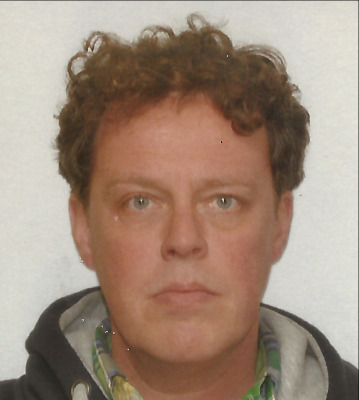Dr Edo Boek
PhD
Reader in Chemical Engineering and Renewable Energy
Programme Director, Sustainable Engineering
IChemE Liaison
E402, Engineering, Mile End
| Feedback/ support hours: |
Please email your tutor with your question / query. Depending on availability and time, the tutor will reply via email with support/feedback or will arrange a time for an audio/video online drop-in session. |
| Expertise: | Research in the group of Dr Edo Boek focuses on sustainable resources engineering. Our group develops novel technologies using advanced processes and materials science to solve pressing environmental challenges including 1) sustainable drinking water treatment, inlc. remediation of PFAS ("forever chemicals") pollution in water resources. We have developed state-of-the-art pilot-scale columns for removal of PFAS using advanced foam fractionation and Granular Activated Carbon filtration operations. The PFAS-rich waste streams are destroyed using Super-Critical Water Oxidation (SCWO) - we recently won a prize for SCWO purification of lunar ice in the prestigious Aqualunar Challenge, see aqualunarchallenge.org.uk/winners/; 2) cultivation of micro-algae in bespoke photo-bio-reactors, followed by rheology analyis, separation and harvesting of nutritionals, biofuels and pharmaceuticals; 3) Geothermal Energy Engineering, incl. development of sustainable and HTHP stable colloidal drilling fluids; 4) smart design of carbon materials for electrochemical devices, including Redox Flow Batteries, using pore-scale imaging and reactive multi-phase flow modelling. |
| Research Centre: | Sustainable Engineering |
| Affiliations: |
Fellow of the Digital Environment Research Institute (DERI) Member of IChemE |
Brief Biography
Dr Edo Boek holds a first degree in Earth Sciences (cum laude) from the University of Utrecht (NL) and a PhD in Chemical Engineering / Applied Physics from the University of Twente (NL). After a PDRA fellowship at the the University of Nijmegen (NL), he accepted a position as senior research scientist at Schlumberger Cambridge Research (SCR), Cambridge (UK). At SCR, he researched complex fluids and flow in porous media, by developing a variety of experimental (rheology, imaging) and multi-scale simulation methods. The central theme of his research is to develop fundamental understanding and prediction of macroscopic properties from the underlying micro- and meso-scopic properties. Applications include PFAS remediation in water and soil resources, clay swelling, drilling fluids, hydraulic fracturing, formation damage, flow assurance, CO2 storage, asphaltene deposition and Enhanced Oil Recovery. After 15 years at Schlumberger, Dr Boek accepted a position as Senior Lecturer at the Dept. of Chemical Engineering at Imperial College London, UK. In particular, he has been responsible as Principal Investigator for the Multi-scale Imaging Facility at the Qatar Carbonates and Carbon Storage Research Centre (QCCSRC), founded at Imperial College through long term industrial research funding. After 2 years at MathWorks, Dr Boek accepted a position as Reader in Chemical Engineering at Queen Mary University of London in the School of Engineering and Materials Science. In this capacity, he was responsible for setting up a new division of Chemical Engineering with focus on renewable energy engineering. He also holds an Honorary Research Fellowship at DAMTP, University of Cambridge. His current research covers experimental, numerical and theoretical development of novel technologies for sustainable resources engineering. This includes remediation of PFAS in drinking water resources, soft and granular matter in external fields and flow in porous media, with emphasis on chemical and physical processes at the pore scale. Dr Boek has > 100 peer-reviewed publications and > 3 granted patents on the subjects of complex fluids and flow in porous media.







